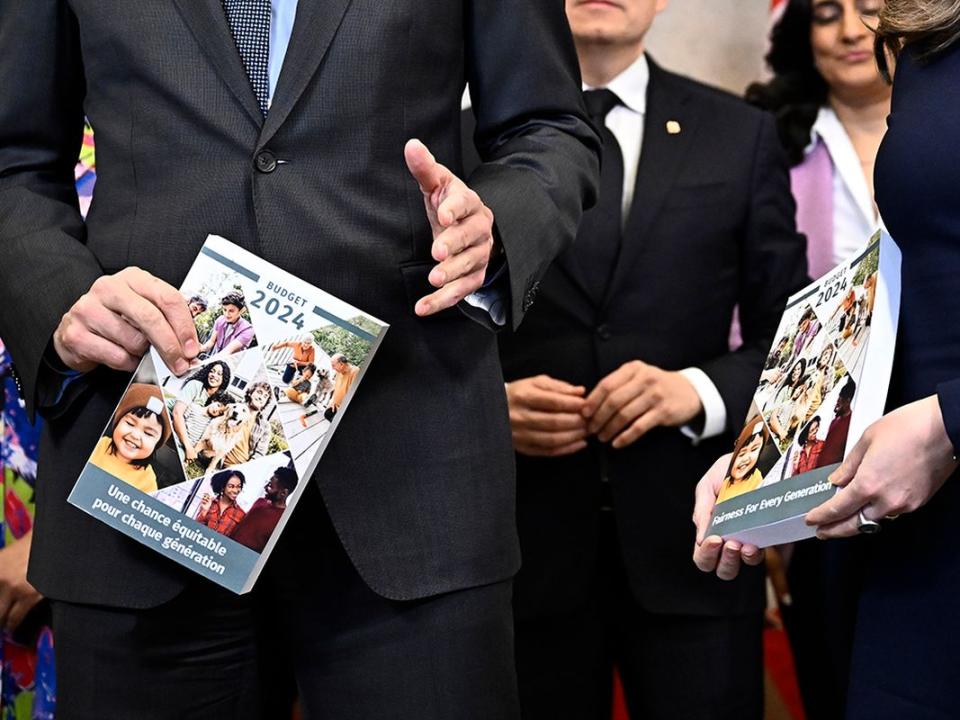Opinion: Time to look at the tax-reform forest, not just the trees

As post-budget debate rages about the merits of changes to the capital gains inclusion rate, chartered professional accountants (CPAs) across the country are fielding calls from taxpayers trying to navigate the rules — which haven’t actually been published yet — ahead of a June 25 implementation date.
Such confusion over tax policies stems from a tax system that has become increasingly convoluted and difficult to comprehend, even for seasoned tax professionals. The fallout from the 2024 federal budget only serves to further underscore what the Canadian accounting profession has asserted for years: Canada’s tax system is in dire need of review and repair.
Constant change in tax policy coupled with the proliferation of complex tax incentives, credits and exceptions brings with it uncertainty, administrative cost and undue stress for taxpayers trying to grasp the implications for their personal finances and the broader economy.
Just the last two years have seen: changes to the requirements around trusts and beneficial ownership reporting; the new under-used housing tax; amendments to mandatory disclosure rules; proposed alternative minimum tax changes; new short-term rental restrictions; and most recently, the proposed increase in the capital gains inclusion rate.
A major driver of this complexity is the difficult dance between the government of the day and the Department of Finance officials tasked with translating political intention into legal language. Many tax changes originate on the political side of this relationship, and quite often, officials are left with too little time to properly consult with tax experts.
This disconnect underscores the importance of effective communication and collaboration between policy-makers and accounting professionals to ensure tax laws are not only practical and feasible in real-world applications but are also efficient, fair and conducive to economic growth.
Without the expertise of accountants to point out contradictions and to ensure newly minted regulations integrate well with older ones, policy-makers’ efforts to strengthen tax policy and halt avoidance may have precisely the opposite effect. Complexity makes compliance difficult.
A perfect example is the federal government’s proposed reform of the “bare trust” reporting rules as part of new beneficial ownership reporting stipulations intended to help combat money laundering and other financial crimes. Through CPA Canada, their national organization, many accountants raised concerns about sweeping reporting requirements and the large number of unsuspecting Canadians likely unaware of their new obligations.
After months of advocacy from CPA Canada and others, the CRA announced it would not require filings for the 2023 tax year and would instead work with Finance to further clarify its guidance on the filing requirement. The decision not to enforce the controversial rules was a relief to many, but the 11th hour timing left taxpayers and accountants contending with an estimated $1 billion in fees and countless hours of work lost to compliance efforts.
Accountants play an important role in shaping our nation’s financial landscape — on behalf of all Canadians — and upholding a just, transparent and carefully considered tax regime. CPA Canada’s annual pre-budget submission has repeatedly recommended that the government adhere to a principled approach to tax policy and administration, one driven by purpose and vision, not politics and expediency.
Matthew Lau: You think taxes are too low? Feel free to pay more
Opinion: Want a truly fairer income tax system? Tax families
CPA Canada continues to call for a comprehensive tax review, led by an independent panel, as an essential driver of Canada’s long-term economic growth. Accountants across the country stand ready to work with the government to refine and improve the tax system, both to address emerging challenges and to ensure it serves the best interests of all Canadians.
John Oakey is vice-president (taxation) at CPA Canada.

 Yahoo Finance
Yahoo Finance 